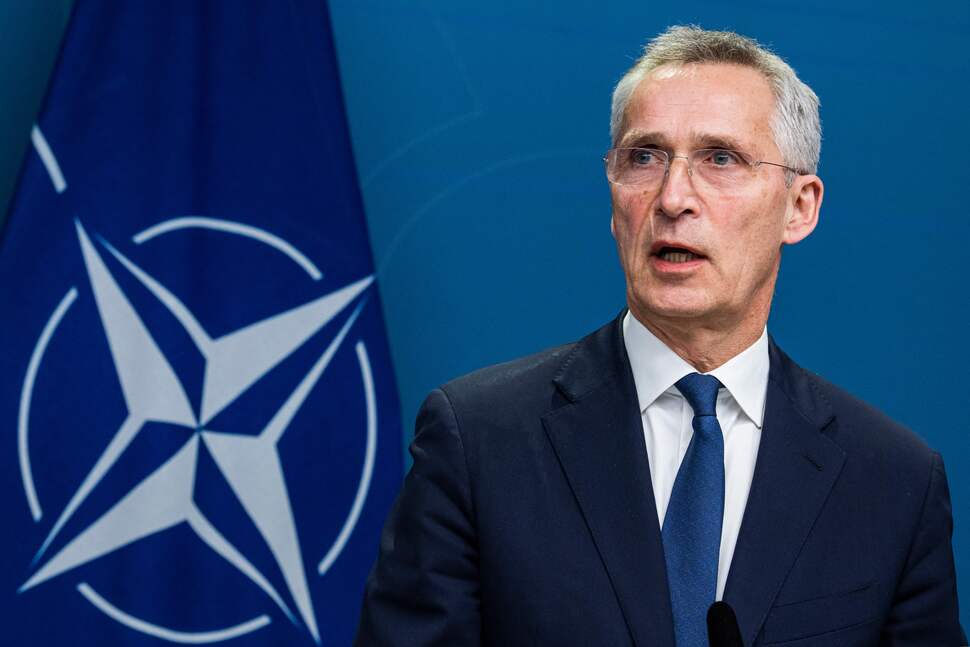A report in The New York Times that appears to clear the Kremlin for an attack on the pipeline last fall is serving as a key talking point for the Russian threat.
NATO Secretary-General Jens Stoltenberg declined to comment Tuesday on an explosive report that suggested a pro-Ukrainian militia could have sabotaged the Nord Stream 2 energy pipeline last year.
“What we know is there was an attack, there was sabotage, and this was an attack against critical infrastructure for Europe,” Stoltenberg said, speaking through a translator during a press conference alongside the Swedish prime minister. He declined to talk more about the attack until after the conclusion of several ongoing national and regional investigations but reinforced how important the assault on European infrastructure has been for the military bloc’s current collective defense.
“What we can say for certain is these attacks show the vulnerability of critical infrastructure,” he added, referencing the yet-unopened oil pipeline from Russia, through the Baltic Sea into Germany, which Moscow previously envisioned as a way to isolate Ukraine and to use as leverage against European powers. Stoltenberg also referenced the vulnerability of internet cables and other infrastructure “important to our modern societies.”
“NATO for many years has been dealing with this security infrastructure, but after the attacks in the Baltic Sea, we have doubled our military presence in the North Sea and the Baltic Sea,” he said. “We have also increased cooperation between NATO countries to exchange information and to strengthen preparedness to better stop further such attacks in the future.”
The previously scheduled press conference at NATO headquarters in Brussels was ostensibly about Sweden and Finland’s efforts to join the alliance amid new concerns about the threats they face from Russia after its invasion of Ukraine. The apparent act of sabotage on Sept. 26 has served as a key talking point for Western leaders concerned about the diverse threats Russia poses to the continent.
But questions from reporters instead centered on a report from The New York Times based on unidentified U.S. officials familiar with intelligence assessments that made several dramatic assertions, including that the Russian government does not appear to have been behind the attacks – at least not knowingly – nor did the government in Ukraine. Rather, the assessments indicate a pro-Ukrainian militia group could have carried out the sabotage operation.
Those familiar with the assessment said, according to the Times, that “there are no firm conclusions about it, leaving open the possibility that the operation might have been conducted off the books by a proxy force with connections to the Ukrainian government or its security services.”
Russia has denied any claims of involvement in the attack, repeatedly dismissing them as Western propaganda and even suggesting U.S. or allied forces carried it out to frame the Kremlin. The government of Russian President Vladimir Putin lit upon a controversial column from Pulitzer Prize-winning journalist Seymour Hersh a month ago that claimed, among fantastic assertions, that “the United States executed a covert sea operation that was kept secret – until now.”
Russia last month called for a U.N. Security Council meeting to discuss the column’s widely disputed findings – a move the State Department dismissed at the time as “another indication of the fact that Russia desperately wants to change the subject.”
“It does not want the world to be focusing on what our Ukrainian partners have achieved over the course of the past year, what the rest of the world has come together to help our Ukrainian partners to achieve, the ways in which the transatlantic community and the community of nations more broadly has never been more united, the ways in which NATO has never been stronger and more purposeful,” spokesman Ned Price said in a Feb. 22 press conference. “Again, not as a threat to Russia but as an alliance that stands to defend our countries against potential aggression.
“It is a sad, sorry state that Russia is doing this, and it’s likewise sad that Russia is finding those willing to parrot its propaganda.”
The Kremlin similarly exploited the latest story from the Times publishing several carefully framed posts through its state news service Tass that pick out details supporting its assertions – chiefly that it had no part to play and that a group at least fighting on behalf of Kyiv orchestrated the attack.
“Western media are bombarded by the news that the investigation into the terrorist attacks against Nord Stream has a version that it is, A) not Russia, B) Ukrainian groups,” Foreign Ministry spokeswoman Maria Zakharova, known for her colorful condemnations of the West, posted to her Telegram channel, according to a translation. “I wonder who allows such leaks, filling the information space with them? Answer: those who do not … want to conduct an investigation in the legal field and are going to divert the attention of the audience from the facts in every possible way.”
“Instead of leaking to Western regimes related to the incident, we need to respond to official requests from the Russian side and, at a minimum, take into consideration the materials of the journalistic investigation of Hersh, without replacing them with anonymous stuff,” Zakharova added.
Stoltenberg said Tuesday that NATO had established a special headquarters unit to coordinate cooperation among NATO members to mitigate fallout from the attack on the pipeline, including coordinating with private companies involved in monitoring critical infrastructure across the continent.

